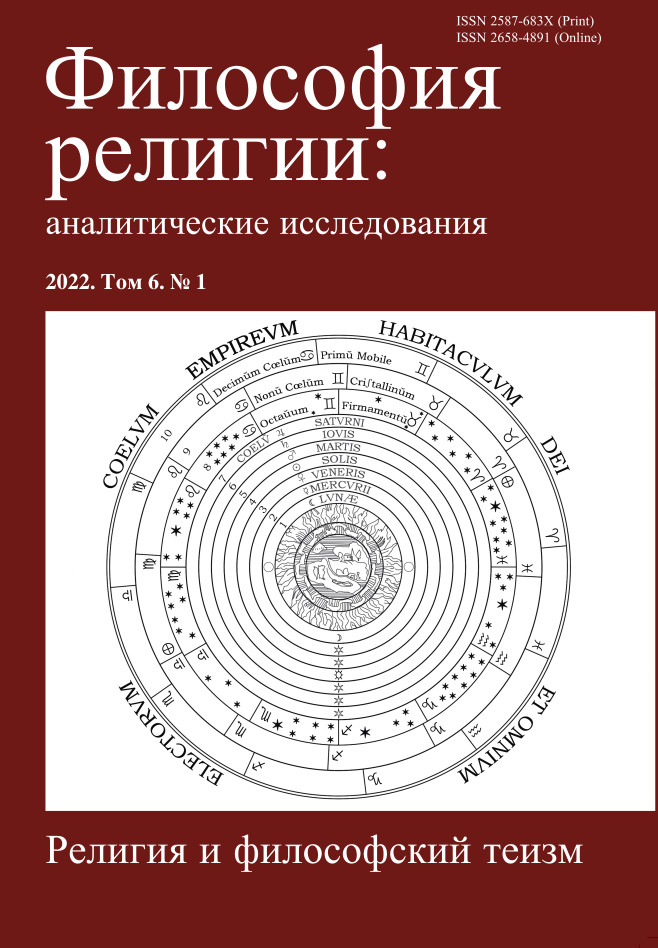Philosophical Principles of Heinrich Klee’s Theology (1800–1840)
DOI:
https://doi.org/10.21146/2587-683X-2022-6-1-24-36Keywords:
Heinrich Klee, German Catholic theology, dogmatic theology, romantic theology, idealism, rationalismAbstract
The article focuses on the study of the dogmatic works of Heinrich Klee (1800–1840) in relation to his criticism and reception of contemporary philosophical systems. The dogmatic theology of Heinrich Klee is a little-studied page in the history of Catholic religious thought in the first half of the 19th century, yet for his contemporaries Klee was a significant thinker, and his theology was the subject of active discussion. The works of Klee are known to have been criticized more than once in connection with the possible borrowing of philosophical ideas in his dogmatic theology. This criticism, however, was taken for granted, without being corroborated by any specific study of his texts – a fault the present article seeks to amend. The article attempts to fit the theology of Heinrich Klee into a philosophical context and analyze the philosophical principles in his theology. In the conclusions of the article, we highlight the tendencies and features of the use of philosophical concepts characteristic for Klee and emphasize the breadth and variety of philosophical trends he was debating. The article uses specific examples to demonstrate that, while openly criticizing such сelebrities as Hegel, Fichte, Schelling, Schleiermacher, Klee not only embraced their philosophical language but also borrowed their foundational ideas. In the article, it was demonstrated with specific examples that, openly criticizing such authors as Hegel, Fichte, Schelling, Schleiermacher, he perceives not only the philosophical language of these authors, but also borrows their system-forming ideas. At the same time, his theological thought moved within the strict framework of the Catholic concept of the objectivity of divine Revelation and the authority of the Church. The article sheds light not only on some of the philosophical and theological positions of a particular theologian of the early 19th century, but also on the discussion about the degree of philosophical foundation of theological constructions in the modern era as a whole.Downloads
Published
2022-04-19
Issue
Section
THE HISTORICAL PARADIGMS
How to Cite
Philosophical Principles of Heinrich Klee’s Theology (1800–1840). (2022). Philosophy of Religion: Analytic Researches, 6(1), 24-36. https://doi.org/10.21146/2587-683X-2022-6-1-24-36

 This work is licensed under a
This work is licensed under a 
